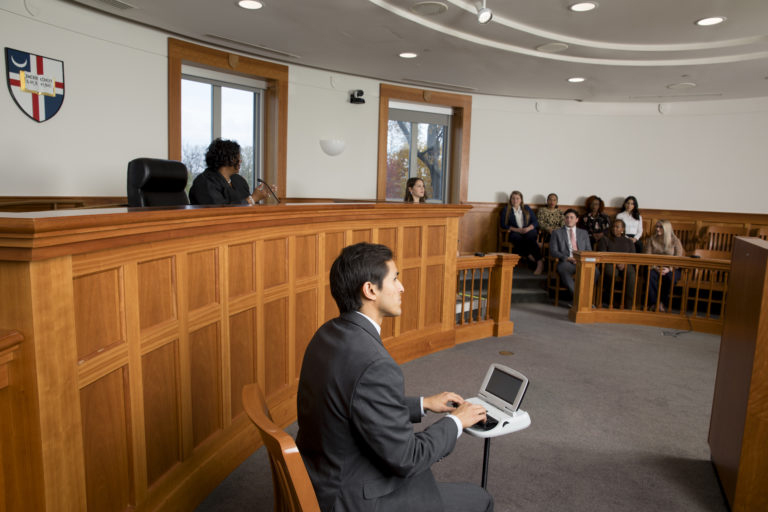The Ethical Importance of court reporting in Protecting Sensitive Information
The Ethical Importance of court reporting in Protecting Sensitive Information
Blog Article

The Future of Court Coverage: Developments and Fads Shaping the Sector
As you explore the future of court reporting, you'll observe a shift driven by innovation and innovation. Real-time transcription and AI applications are reshaping just how lawful procedures are recorded. With remote depositions gaining traction, the landscape is progressing rapidly. It increases concerns regarding the duty of court reporters and the abilities they'll require moving ahead. What does this mean for experts in the area? The answer might stun you.
The Influence of Artificial Knowledge on Court Coverage
As artificial knowledge remains to progress, it's reshaping the landscape of court coverage in methods you might not anticipate. You might find that AI devices are improving tasks commonly managed by human reporters, permitting higher effectiveness. For instance, AI can analyze vast quantities of legal text, aiding you recognize pertinent precedents and improve situation prep work. You'll likewise notice AI-driven applications assisting in file monitoring, making it much easier for you to arrange and retrieve essential information rapidly.
Moreover, AI can enhance the preparation procedure by providing anticipating analytics, which can help you expect test outcomes based on historic information. With AI dealing with regular jobs, you can concentrate more on your core responsibilities, such as guaranteeing precision and supplying essential legal insights.
Real-Time Transcription: Enhancing Accuracy and Effectiveness
Real-time transcription has actually changed the court reporting procedure, making it easier than ever for you to catch precise documents right away. With innovative modern technology, you can currently supply prompt transcripts during hearings or depositions, ensuring that all parties have accessibility to important details immediately. This immediacy not just improves the general efficiency of the lawful process but additionally enables you to focus on the discussion, instead than scrambling to capture up.
As you make use of real-time transcription, you'll discover a significant decrease in errors, many thanks to automated checking tools that flag inconsistencies as you kind. Additionally, customers appreciate the ability to examine transcripts instantly, making it possible for quicker decision-making and smoother procedures. By embracing this technology, you're not simply improving your operations; you're establishing a new standard in court coverage that focuses on accuracy and efficiency. This forward-thinking approach placements you at the center of the advancing lawful landscape (court reporting).
The Increase of Remote Depositions

With the expanding demand for adaptability in legal procedures, remote depositions have actually emerged as a game-changer in court coverage. You can currently join depositions from anywhere, getting rid of traveling time and expenses. This ease allows you to focus on what really matters-- preparing your situation.
Remote depositions use innovative modern technology, enabling real-time interaction and file sharing. You can involve with witnesses and lawyers flawlessly, making particular that everyone remains connected no matter their physical location. This method not only saves time yet additionally increases your swimming pool of specialist witnesses, as geographical obstacles end up being less of an issue.
As remote depositions gain popularity, it's crucial to adapt to this brand-new standard. Familiarize yourself with the necessary devices and methods to ensure a smooth experience - court reporting. Accepting this advancement can provide you an one-upmanship, allowing you to browse the ever-evolving landscape of lawful procedures successfully
Digital Courtrooms: Transforming the Legal Landscape
As you tip into the world of electronic court rooms, you'll see just how digital hearing innovation is reshaping legal process. This change not just makes accessibility much easier however likewise boosts transcription precision, ensuring every word is captured correctly. Embracing these advancements can considerably improve the efficiency of the legal process.
Online Hearing Innovation
While the conventional court setting has long been a symbol of justice, the rise of digital hearing innovation is improving exactly how legal process are carried out. You'll find that these digital systems offer unmatched accessibility, enabling individuals to sign up with from anywhere. This flexibility not just conserves time but also minimizes costs connected with traveling and logistics. Picture having the ability to offer your case without stepping foot in a physical court. Additionally, virtual hearings can improve engagement, enabling witnesses and professionals to give statement without the restraints of location. As you adapt to these adjustments, you'll notice that virtual hearings preserve the honesty of the legal process while welcoming innovation, eventually transforming the means justice is served in the modern world.
Boosted Transcription Accuracy
Improved transcription accuracy is reinventing the legal area, making court procedures extra reliable than ever before. As a result, vital details aren't shed in translation, guaranteeing that the honesty of the legal procedure is maintained. Accepting these modern technologies implies you're tipping into a future where quality and precision in lawful paperwork are extremely important, ultimately profiting all events included in the judicial this link system.
The Role of Court Reporters in Virtual Hearings
Court press reporters play a necessary duty in virtual hearings, assuring that every word spoken is properly caught and recorded in real-time. As a court reporter, you promote communication between parties, making complicated legal procedures accessible. Your expertise in legal terms and the ability to quickly adapt to various speakers are important in this electronic atmosphere.
During online hearings, you preserve an undeviating emphasis, even in the middle of technical difficulties or disturbances. You give a clear, written record that can be referenced later, aiding courts, lawyers, and clients understand the proceedings. Your skills in steering different platforms ensure that you can effortlessly incorporate into any he has a good point online arrangement.
Moreover, you also assist maintain the stability of the judicial procedure, validating that every individual's voice is listened to. By doing this, you not just improve the efficiency of legal proceedings yet also add to the overall justness and openness of the justice system.
Technologies in Documents and Record Maintaining
As technology progresses, advancements in paperwork and record maintaining are changing exactly how stenotype reporter record and take care of lawful transcripts. You'll find that digital devices enable for quicker and more accurate transcription, lowering the opportunities of human mistake. Cloud-based storage solutions allow you to safely store and accessibility records from anywhere, making collaboration with lawful teams smooth.
Synthetic intelligence is additionally playing a considerable role, aiding with real-time transcription and even offering clever modifying features. These innovations not just improve effectiveness however also ensure that you can provide top notch paperwork in a busy legal atmosphere.
In addition, the integration of voice acknowledgment software improves the procedure, allowing you to concentrate extra on the nuances of the procedures as opposed to just inputting. By welcoming these innovations, you're positioned to raise your abilities and meet the demands of contemporary court reporting effectively.
Future Skills and Educating for Court Reporters
While modern technology reshapes the landscape of legal procedures, it's essential for court reporters to adapt by getting new skills and training. You'll require to acquaint yourself with sophisticated transcription software and digital coverage tools to stay competitive. Accepting fabricated knowledge and real-time captioning will certainly enhance your efficiency and accuracy.
Additionally, developing strong research and analytical skills is vital. You'll frequently experience complex legal jargon and treatments, so understanding legal concepts will certainly develop your coverage. On-line training courses and workshops can provide important insights into these locations.
Networking with other professionals will certainly additionally assist you stay updated on industry trends. Signing up with companies or going to conferences can expose you to brand-new modern technologies and finest methods.
Finally, honing your social abilities will certainly boost interaction with attorneys and clients. By concentrating on these locations, you'll position yourself for success in the developing field of court coverage.
Regularly Asked Concerns

What Qualifications Are Required to End Up Being a Stenotype Reporter Today?
To come to be a court press reporter today, you'll need a secondary school diploma, specialized training in court coverage, and accreditation, typically through a nationwide exam. Solid typing abilities and interest to detail are necessary for success.
How Can Court Reporters Stay Updated With New Technologies?
To remain updated with brand-new technologies, you need to participate in workshops, join specialist organizations, and subscribe to pertinent publications. Connecting with peers and joining on-line forums can additionally keep you informed regarding the most up Homepage to date improvements.
What Is the Typical Salary for Court Reporters Currently?
The typical salary for stenotype reporter varies by area and experience, but you can anticipate around $50,000 to $70,000 every year. In some areas, experienced press reporters can gain a lot more, particularly with specialized skills.
Exist Job Opportunities for Court Reporters in Non-Legal Fields?
Yes, there are work opportunities for stenotype reporter in non-legal fields. You can discover duties in closed captioning, transcription solutions, and media, where your skills in recording spoken language are very valued and searched for.
Exactly How Does Court Coverage Differ in Numerous Countries?
Court reporting varies significantly throughout countries. You'll locate distinctions in terminology, technology, and legal systems. Some nations highlight digital reporting, while others still depend on conventional stenography techniques for catching spoken words.
Report this page